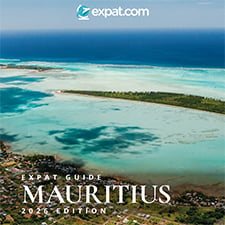
Thanks to its idyllic setting and its proximity to Africa, India, Australia and Asia in general, this small, independent, and prosperous republic attracts, every year, many foreigners seeking a high quality of life. If you're looking to make the move, accommodation should be a priority for you. Here is what you should know if you are looking for a place to live.
Renting accommodation in Mauritius
Houses, villas, studios and apartments are available in Mauritius. As a general rule, accommodations are furnished and equipped with appliances. The leases are usually established for one year, with tacit renewal. For a smooth rental, it is advisable to check with the owner or the rental agency before the end of the written lease.
The payment of 1 or 2 months' deposit is often required. Remember to draw up an inventory of fixtures before signing the lease. Do not hesitate to take pictures during your visit. Water (CWA) and electricity (CEB) are sometimes included in the rent, although this practice tends to disappear these days.
Heating is not necessary in Mauritius, except maybe for accommodation on the Central Plateau, where you can often find electric heaters. Air conditioning is not always necessary, but it can be very pleasant during summer. On this last point, the electricity bill can rise very quickly if you use such an appliance.
If you go through a real estate agency when renting, note that the commission, shared between the owner and the tenant, generally represents one month's rent.
Rentals in Mauritius
Prices are very variable, depending on the preferences of everyone (view, proximity to beaches or centers, leisure facilities, swimming pool, garden, security services, furnishings, equipment, etc.).
The Mauritian rental market is rapidly changing. Houses, apartments, studios, aparthotels, PDS villas and units with the Invest Hotel Scheme (IHS) are now available for rent.
Luxury homes are no exception, with second-home owners renting out their properties for part of the year.
Average rents in attractive areas for expats
In Port-Louis, apartment rentals typically range from Rs 15,000 to Rs 40,000. However, many expats prefer residences in Grand Baie, Flic en Flac, or Tamarin in the west of the island. In these areas, prices for similar apartments in the north can vary from Rs 18,000 to Rs 130,000.
For those seeking a seaside lifestyle in places like Flic en Flac or Tamarin, rents generally fall between Rs 18,000 and Rs 60,000.
If you opt for a house with a garden in the West or North, suitable for a family of four, anticipate a monthly budget of around Rs 50,000 to Rs 70,000.
In general:
- Inland accommodations typically range from Rs 15,000 to Rs 35,000;
- Properties near tourist areas may range between Rs 45,000 and Rs 75,000.
- For those interested in beachfront villas with luxury amenities, prices can exceed Rs 100,000.
It's important to note that these prices serve as a reference and may vary based on the property owner and the specific features of each residence.
Useful links:
Directory of real estate professionals
Central Electricity Board - CEB
Where to live in Mauritius
The North of Mauritius
The North of Mauritius is undoubtedly a hub for expats looking for a lifestyle that naturally oscillates between a relaxed lifestyle and convenience. The varied shops, proximity to the schools, located in and around Mapou for most, availability of buses (Triolet Bus Service - TBS network), cabs, and freeway make the north of the island conducive to a serene life.
Pros:
The north of the island is well-served by public transport, and the road infrastructure is well-developed and connects this region to the rest of the world.
The area is home to shopping centers, businesses, schools, and numerous offices and workspaces.
Many of the northern beaches are among the most beautiful on the island.
Cons:
If what you want is to be away from it all, the North is not for you. The region is very popular with tourists as well as Mauritians, who love this area for its beaches and its nightlife. Moreover, the summers are particularly hot.
Among the most famous villages are:
Grand Bay: This seaside town is home to all the necessary amenities, a lively nightlife, while being located 15 minutes from international schools and 30 minutes from Port-Louis, the capital. Its climate is sunny all year round, with light winds and pleasant temperatures.
Pereybère: Beyond the Grand Bay coastline in the North of Mauritius, Pereybère was once a small fishing village that has changed a lot while keeping an appreciable authentic side. Less touristy, it has all the essential amenities. As for the climate, you will enjoy very hot summers (November to March) and mild winters while being sheltered from the wind.
Calodyne: In the northeast of Mauritius, it is a small, preserved region that is a haven of peace. It is close to the beach, which is why it is appreciated by expats looking for tranquility without being cut off from the world. As for the weather, Calodyne enjoys a tropical climate with rainfall and a short dry season.
The West of Mauritius
This region is also touristy, with many amenities, and has a particularly lively nightlife while being child-friendly. Its beaches are popular all year round.
Pros:
To keep up with the influx of tourists and expats, more and more schools, shopping malls, gyms, shops, and other developments are being built in this area.
The beaches are never far away, especially those of Flic-en-Flac, Tamarin, and La Preneuse.
Mountains and other hiking trails are easily accessible, including the Black River Gorges National Park.
It is easier to find peace and quiet in this area unless you are in Flic-en-Flac.
Cons:
The Center, and even Port-Louis, are less accessible from the west than from the north, for example.
Summers are hot, but less than in the North of the island.
Popular villages in the West are:
Tamarin: Tamarin is a seaside region ideal for families, couples and solo expats. Away from the hustle and bustle of tourism, its climate is dry in winter and rather rainy in summer. There are amenities such as stores, banks, pharmacies, supermarkets, and sports clubs with tennis courts, beach volleyball, and a swimming pool. For children, there is the Paul et Virginie School (kindergarten and primary school) as well as the Telfair International Primary School.
Flic-en-Flac: located on the west coast of the island, it is the second seaside hub of Mauritius, and therefore, it is animated and touristy with bars, restaurants, nightclubs, and casinos. The beauty of its beaches is breathtaking. During the week, Flic-en-Flac is quiet, allowing you to enjoy the beaches and the numerous water activities, such as scuba diving or windsurfing.
The South of Mauritius
This region of the island is untouched, less touristy, has different landscapes, and is sometimes steep. If you are a nature lover and you do not have to travel frequently to the capital and its surroundings, the South of Mauritius is the perfect region to live fully immersed in the Mauritian way of life.
Pros:
The south of the island is far from everything; it offers serenity and tranquility that is not accessible anywhere else on the island.
The South is literally between the mountains and the sea, so you don't have to choose.
Some of the most beautiful beaches on the island are in the south, including Le Morne in the southwest and Blue Bay in the southeast.
Cons:
The South is far from everything, with not many shopping centers, schools, or shops around.
The South is not well served by transportation, and road infrastructure is limited.
A popular village is:
Mahébourg: In the southeast of the island, Mahébourg and the surrounding villages, Blue Bay and Pointe-d'Esny, can be interesting options for solo expats or those without children. The village is served by a highway connecting it to the center of the island; it is only a few minutes from the airport and the beaches of Pointe d'Esny and Blue Bay, which are among the most beautiful on the island. There is also a shopping mall a few minutes drive from the village and many small and varied shops and typical restaurants.
The East of Mauritius
This region is home to some of the most beautiful beaches on the island, such as Belle Mare or Trou d'Eau Douce. Its peaceful environment, its village atmosphere, its lagoon, and its wonderful bays offer an authentic atmosphere. Furthermore, golfers will find breathtaking courses, such as the Constance Belle Mare Plage.
Pros:
There are beautiful beaches in the east of the island. While it is close to Flacq, which is home to shopping centers and other facilities, it is still possible to find serenity in the East of the island since it is less accessible and busy.
Cons:
The area remains difficult to access from the center of the island, although developments are underway to remedy this.
Schools, especially private ones, and administrative offices are not well represented in this part of the island.
A popular village is:
Poste Lafayette: This is the most affluent part of the area and is home to a large expat community that has chosen to live by the sea. You will find many villas with private access to the beach. As for the climate, although it is sunny most of the time, it is quite windy.
Turning your house in Mauritius into a home
When you moved to Mauritius, you probably left behind some of the things that made your house a home. To make this new life as sweet and pleasant as possible, the island has no shortage of shops specially dedicated to furnishing, DIY, decoration, etc., such as Macumba Ltd, Espace Maison et Jardin, Teak World, Mr Bricolage, La Foir'Fouille, Roche Bobois and Moodesign. If you want to remain eco-friendly while furnishing and decorating your home, The Good Shop is a collaborative initiative, particularly oriented towards the circular economy. Three shops have opened so far, in Calebasses, Curepipe and Moka, respectively.
In Mauritius, it is also common to have your furniture made by local cabinet makers. Ask around or visit the Mauritius forum for information and tips!
Note that most furniture stores offer free delivery and assemble the furniture for you. To take advantage of this, just ask when you visit the store.
Regarding the prices of products in store, most of them being imported, the prices can be slightly higher than in Europe, for example.
Units of measurement in Mauritius
Mauritians rarely speak in square meters. Thus, you will probably hear about square feet, perch, and toise:
- 10.7641 square feet = 1 square meter;
- 1 perch = 42.21 m² (42.21sq. ft.);
- 1 toise = 3.80 m² (3.8 sq. ft.);
- 1 arpent = 100 perches;
- 1 perch = 11,11 toises;
- 1 arpent = 1,111 toises.
We do our best to provide accurate and up to date information. However, if you have noticed any inaccuracies in this article, please let us know in the comments section below.









